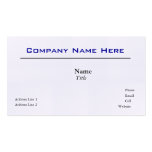In Reno v. American Civil Liberties Union (1997), Justice John Paul Stevens extolled the virtues of the Internet as a medium for speech. In this "vast democratic forum," he wrote, anyone "with a computer connected to the Internet can 'publish' information ... [A]ny person with a phone line can become a town crier with a voice that resonates farther than it could from any soapbox."
Two decades later, Justice Stevens' words ring even more true. The explosion of Internet access--from 1.3 percent of the world's population in 1997 to 51 percent in 2017--has expanded this democratic forum to include billions. Thanks to broadband, voices now resonate across six of Earth's seven continents without the use of a phone line.
Since the 1990s, hundreds of innovative Internet intermediary services--website hosts and operators, email and domain name providers, search engines, social media networks, and more--have popped up to provide or facilitate virtual soapboxes for town criers to engage in worldwide discourse.
Yet, thanks to ill-advised efforts by Congress, the Internet's days as the bullhorn of democracy may be numbered. In August, Senators Rob Portman (R-Ohio) and Claire McCaskill (D-Mo.) introduced the Stop Enabling Sex Traffickers Act of 2017 (SESTA) (S. 1693), a bill that would amend Section 230 of the Communications Decency Act. A similar bill was introduced in the House (H.R. 1835).
Though the intentions are laudable, these legislative efforts to fight sex trafficking would undermine key protections that enable free expression online.
The Internet's First Amendment
In 1996, Congress passed the Communications Decency Act (CDA) in an attempt to regulate speech online. Following a public campaign against the CDA by free speech advocates, a panel of federal judges blocked part of the legislation, writing that "as the most participatory form of mass speech yet developed, the Internet deserves the highest protection from government intrusion."
A year later, in Reno v. ACLU, the Supreme Court stripped the law of its more constitutionally problematic provisions, leaving Section 230 intact. Called "the cornerstone for free speech online," Section 230 protects online speech by granting "interactive computer services"--the intermediary services discussed above--limited immunity from third-party speech liability.
Section 230 does not grant intermediaries full immunity. Courts have differed on the breadth of circumstances under which the safe harbor provision applies. Moreover, the provision explicitly does not extend to criminal liability under federal law, including federal sex-trafficking statutes.
SESTA would dramatically narrow the safe harbor by subjecting Internet services to state criminal prosecution as well, and to civil actions targeting user content that violates federal sex-trafficking laws. This narrow exception for sex trafficking is the camel's nose under the tent, and It is difficult to overstate the significance of the Section 230 protections that SESTA threatens to erode.
Without Section 230, intermediary services that host third-party speech would be subject to publisher liability under a patchwork of complex and potentially conflicting state laws. Online platforms could potentially face state criminal prosecution or civil liability for every single comment, image, and video their users post.
With service providers as diverse as Facebook, Google, Pinterest, Wikipedia, and Reddit hosting and transmitting often millions of pages of user-generated content per day, the legal risk becomes astronomical--and the incentive to censor proportionally so.
Absent Section 230, the services that make online speech possible would not only face a slew of defamation suits and other costly litigation; they would also come under enormous pressure to filter, moderate, or otherwise censor their users' speech. Many intermediaries may opt not to host or transmit any user content at all.
At the same time, little would be gained in the efforts to stop sex trafficking. Even sympathetic experts have questioned whether SESTA would be effective and many say it could be counterproductive by driving the activity farther underground, where law enforcement would have a harder time reaching it.
A Catch-22 for Online Intermediaries
Paradoxically, even though SESTA's state-law preemption exception would encourage further policing of user content, its linking of liability to a broad knowledge standard - SESTA speaks of "knowingly" benefiting from sex trafficking - could actually discourage intermediaries from monitoring content for misconduct.
As Matt Schruers, vice president of law and policy at the Computer & Communications Industry Association notes, "[m]issed calls happen, and if a missed call about one posting could provide the requisite knowledge for a trafficking charge, many intermediaries might be directed by lawyers to stop policing at all."
Consider that Silicon Valley giants are not the only ones SESTA's provisions would target. According to Eric Goldman, director of Santa Clara University's High Tech Law Institute, SESTA's vague language "potentially implicates every online service that deals with user-generated content." SESTA would thus force even smaller entities, like independent bloggers and social media entrepreneurs, to err on the side of caution by screening or censoring their users' content.
Section 230 is the law that made today's Internet possible. Without a robust safe harbor, the vast democratic forum that Justice Stevens praised would cease to exist as we know it. While fighting sex trafficking is certainly a goal worthy of pursuing, damaging that engine and sacrificing our freedom of speech is too high a price to pay.












